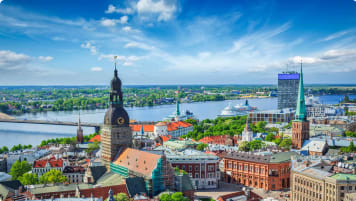Questions about Sweden: A Definitive Guide for Travellers
Questions About Sweden for senior travellers Odyssey Traveller specialises in crafting unforgettable experiences for senior and mature-aged travellers interested in learning whether travelling as a couple or as a solo traveller. Providing adventure and educational programs to escorted small…
20 Jul 20 · 2 mins read
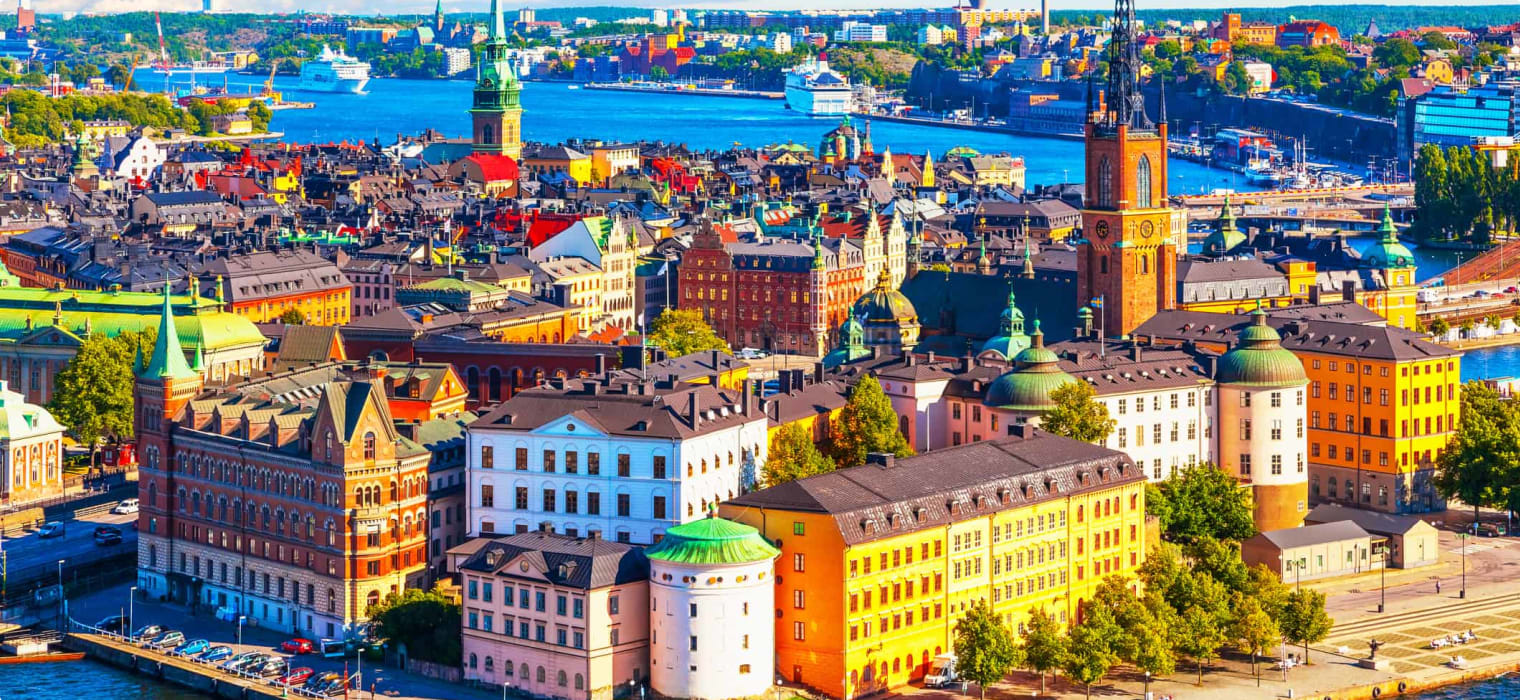
Questions About Sweden for senior travellers
Odyssey Traveller specialises in crafting unforgettable experiences for senior and mature-aged travellers interested in learning whether travelling as a couple or as a solo traveller. Providing adventure and educational programs to escorted small group tours since 1983. Odyssey has built up a reasonable knowledge bank to answer questions about Sweden that travellers are likely to ask, as they make their plans to tour independently, or with us as part of a small group tour. We hope that this list of frequently asked questions and the answers we provide will help you with planning your next holiday.
Read on, but please do not hesitate to contact us via the website, or through email or chat if you have more questions about Sweden or our other tours.
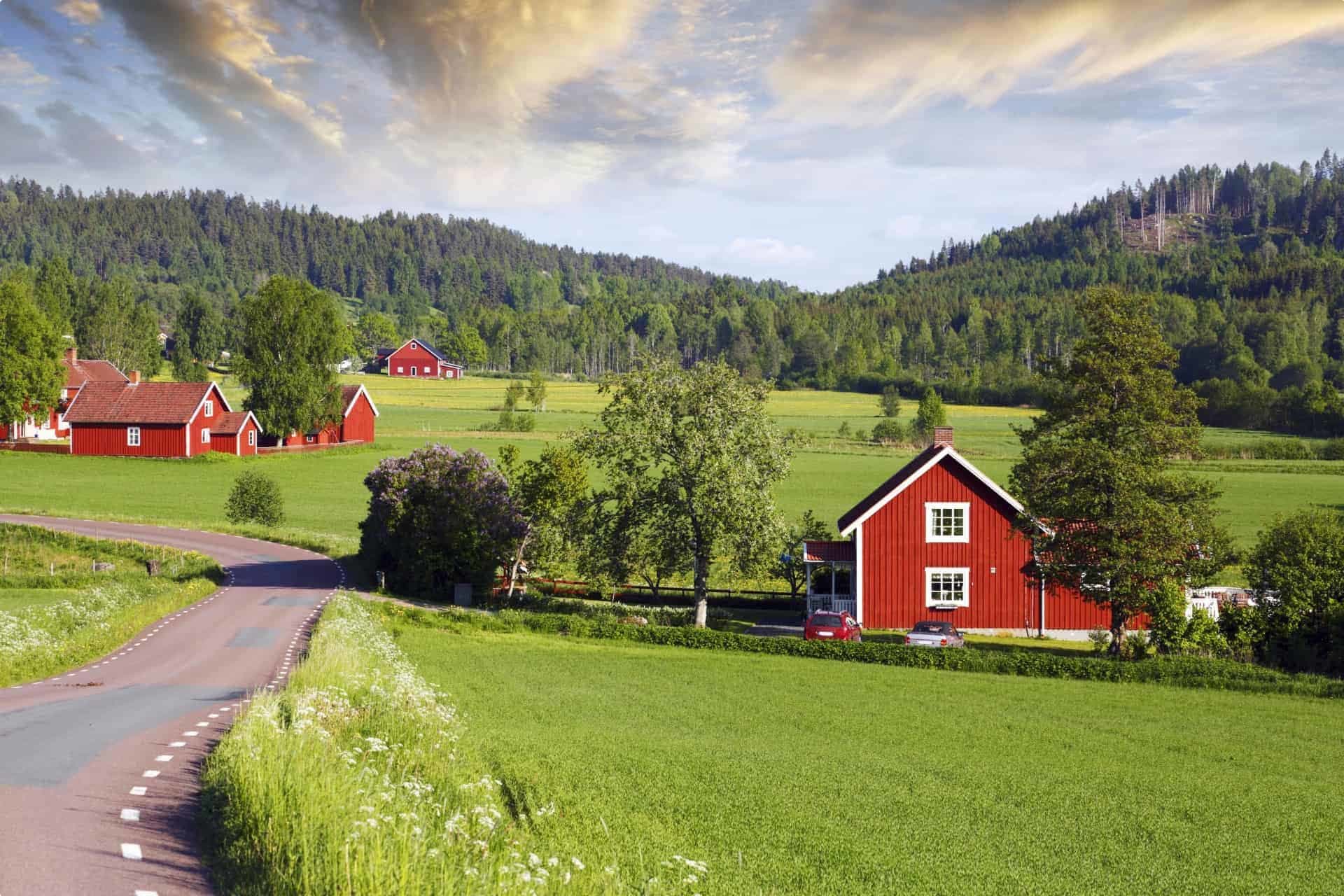
Typical Swedish Countryside
FAQs
Where is Sweden located?
How did Sweden become a country?
Sweden was initially part of a three-state union known as the Kalmar Union. The union was founded in 1397 and comprised of three countries: Denmark, Sweden, and Norway, all under one monarch. The union faced civil war in the 15th century resulting in what was declared the Stockholm Bloodbath in 1520. An act by the Danish union to execute 80 Swedish nobles incited a rebellion in 1521 that led to the unseating of the leader, King Kristan II, and also to the rise of an elected King of Sweden called King Gustav Vasa in 1523.
The Swedish recognize and celebrate 6th June 1523 as the day when Sweden became a country. This is significant because the crowning of King Gustav Vasa was the basis of Sweden attaining an independent state and later adopting a universally accepted constitution in 1809.
How did Sweden get its name?
Around 2,000 years ago, the Svear people gave Sweden its name. In their language, svear meant “us” and rike meant “kingdom.” So, Sverige, the modern Swedish name of the country, means “Our Kingdom. The country’s ancient name was Svithiod
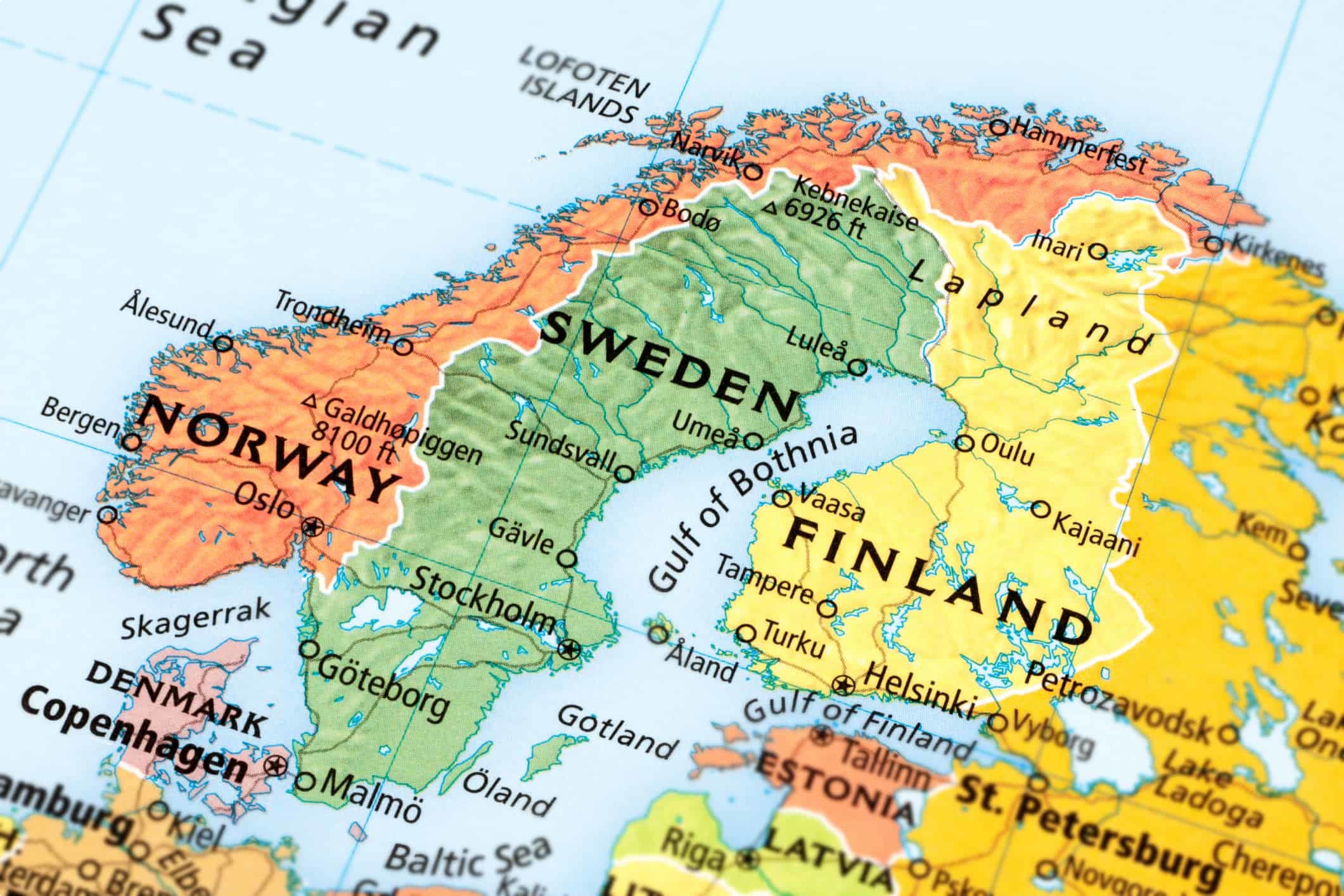
Map of Sweden

Vasa Museum, Stockholm
FAQs
What is Sweden famous for?
Sweden is an amazing country, known for its clean streets, successful welfare and high percentage of non-religious people.
Beside the obvious of Abba, Ikea and meatballs, as a tourist you are more likely to encounter husky rides, the northern lights, the midnight sun, crystal-clear lakes, snow-covered forests, brightly painted wooden horses, snus, and some of the planet’s best free camping.
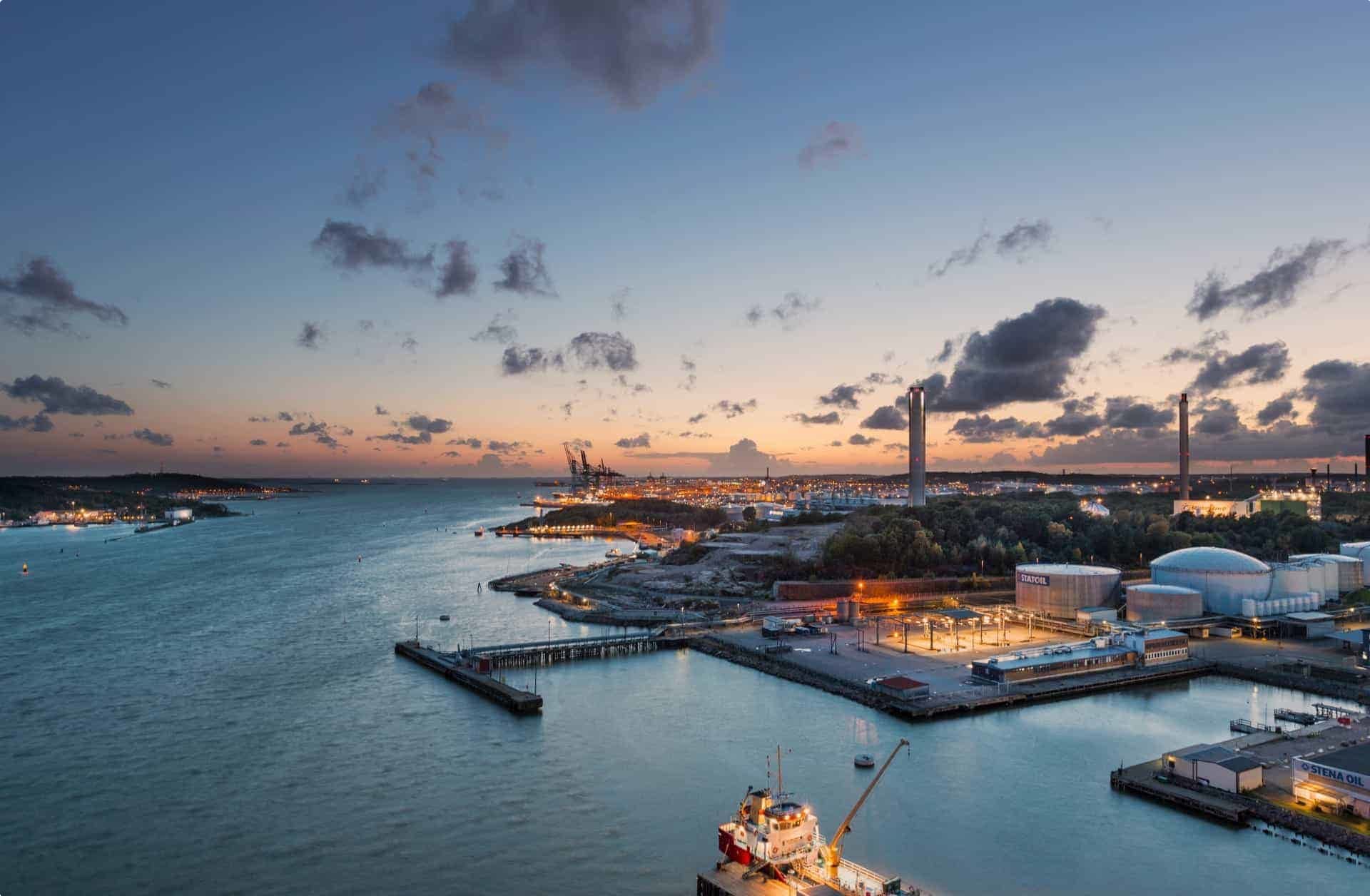
Gothenburg Harbour
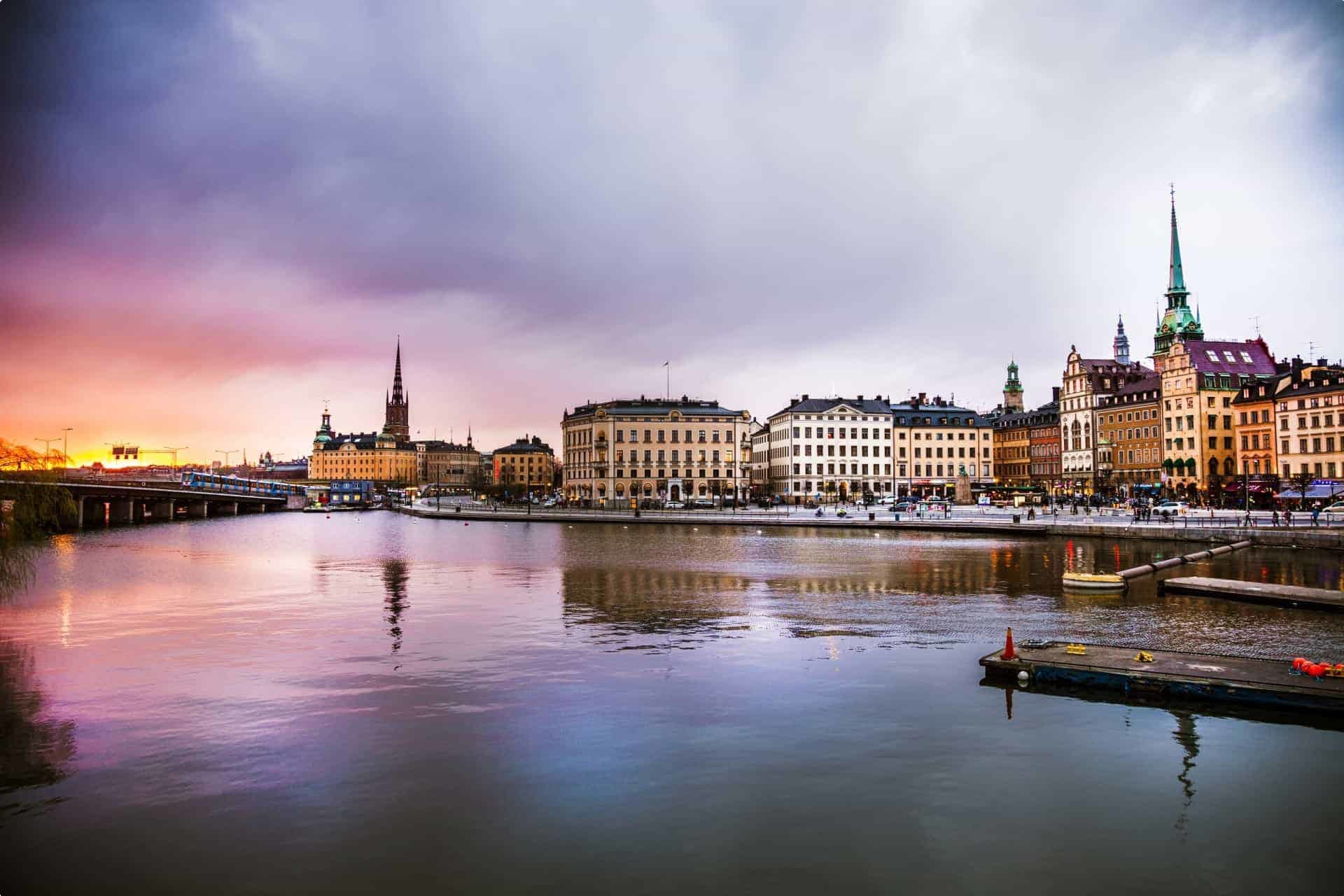
Stockholm
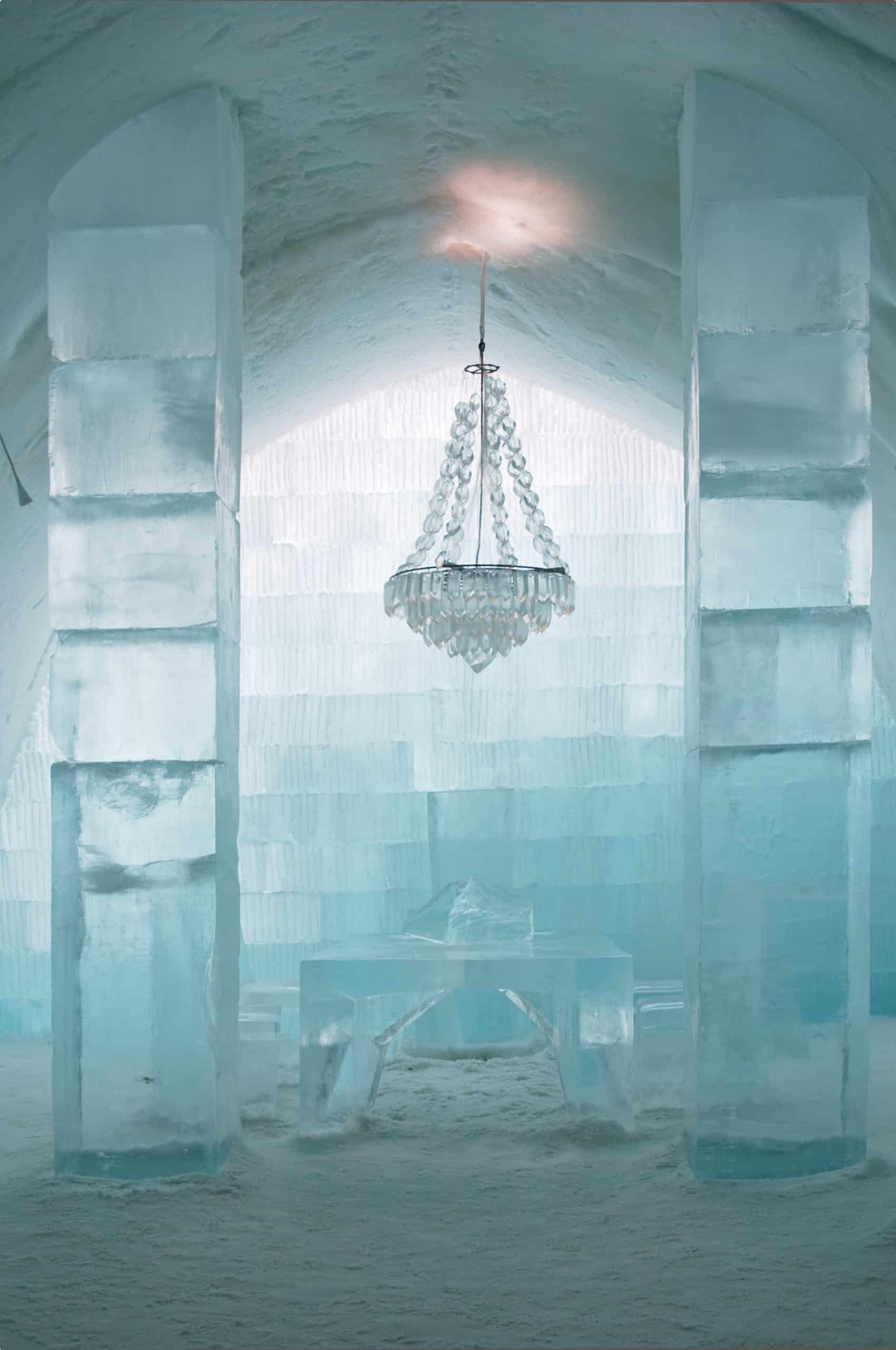
Icehotel, Kiruna, north Sweden
FAQs
What language do they speak in Sweden?
Swedish is the official language of Sweden and is spoken by the vast majority of the 10 million inhabitants of the country. It is a North Germanic language and quite similar to its sister Scandinavian languages, Danish and Norwegian.
What type of food do they eat in Sweden?
Swedish cuisine is famous for culltured dairy products, crisp and soft (often sugared) breads, berries and stone fruits, beef, chicken, lamb, pork, eggs, and seafood. Potatoes are often served as a side dish, often boiled. Many meat dishes, especially meatballs, are served with lingonberry jam. Blueberry soup (blåbärssoppa) served hot or cold, is typical of Swedish cuisine. Sweden’s pastry tradition features a variety of yeast buns, cookies, biscuits and cakes; many of them are in a very sugary style and often eaten with coffee – famous name for a coffee and pastry moment is “fika”.
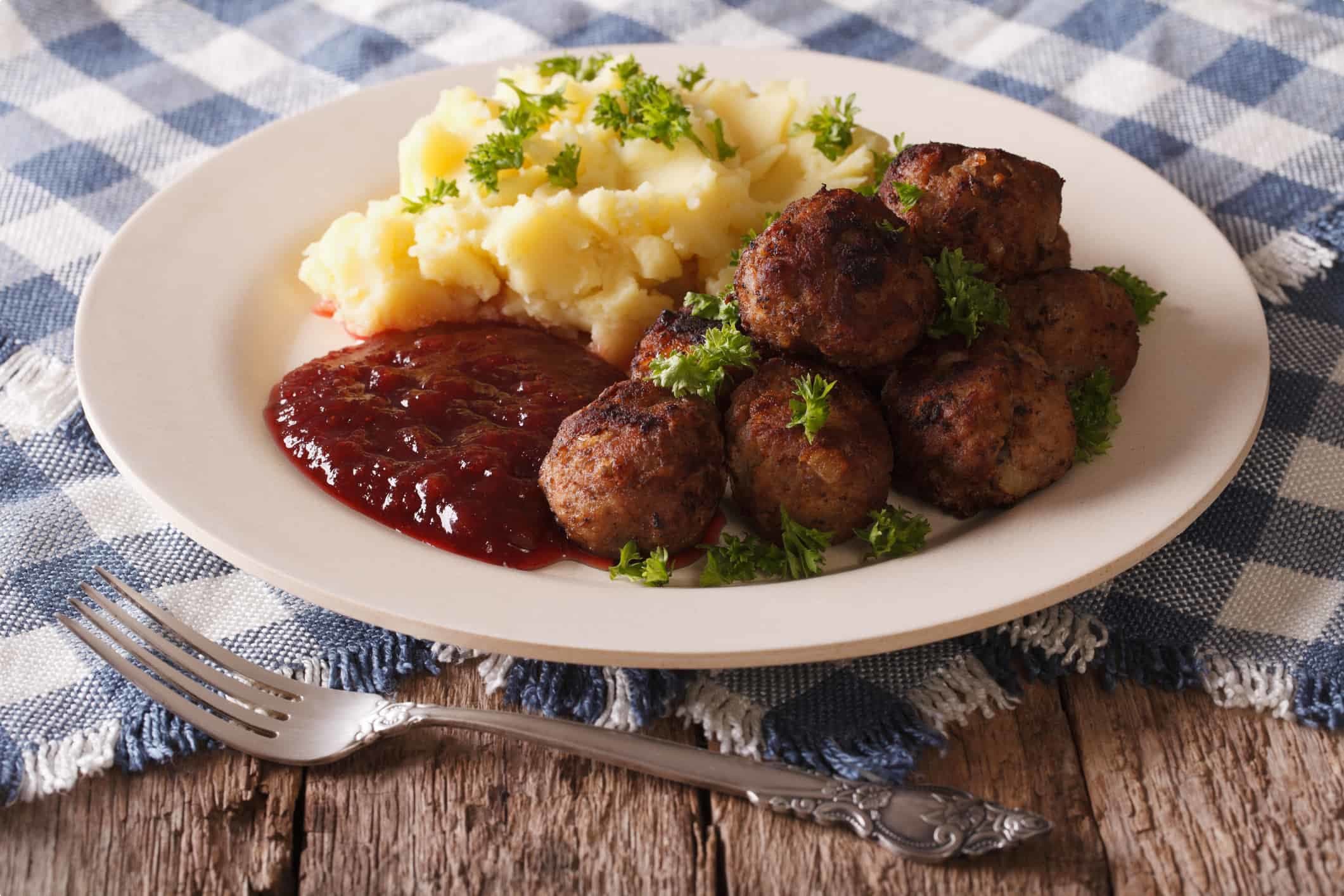
Swedish meatballs with lingonberry sauce
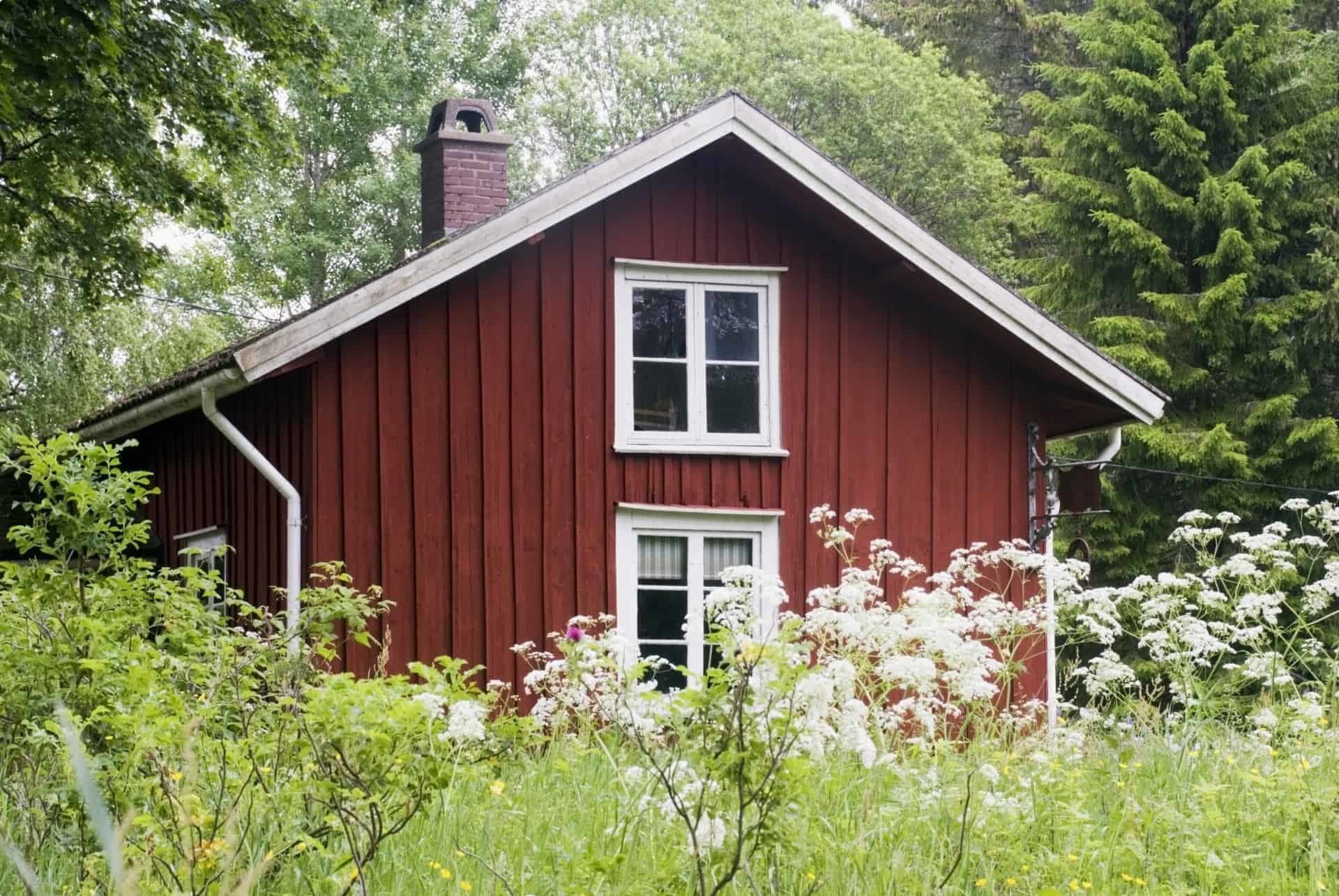
Swedish cottage
FAQs
What is the currency in Sweden?
The monetary unit in Sweden is the krona SEK (plural “kronor”) and like Norway’s currency, is sometimes mistranslated into ‘crown’ in English. There are 100 öre in 1 krona.
Although debit or credit cards are accepted at most places in Sweden, it is still a good idea to have a bit of cash on you. Unlike other countries in Europe that may have their own currency but accept the Euro, foreign currency is rarely accepted in Sweden so you do need Swedish currency to get by.
Sweden has a reputation for being expensive, although some argue this is undeserved. Alcohol is heavily taxed and this is reflected in the price. Here are some typical prices of staples in Sweden:
- 1 litre of milk: SEK 10 / 1 EUR
- Cappuccino at a coffee bar: SEK 25 /2.5 EUR
- Cinema ticket: SEK 100 / 10 EUR
- Meal in a budget restaurant: SEK 150 / 15 EUR
- Bottle of beer in the patented bottle shop “Systembolaget”: SEK 15 / 1.5 EUR
- Pint of beer in Swedish pub: SEK 60 / 6 EUR
Where should you visit in Sweden?
Sweden is an incredible country often missed by most European travellers. It has a spectacular landscape, amazing cities, and an educated population, most of whom speak English. Furthermore, its history and culture are much older that most other countries.
Up north the land is covered with dense green forests. Head southward though, and you’ll discover a sea of little red island cottages scattered across the Stockholm Archipelago. In between lies a pastoral countryside filled with ancient Viking burial grounds and fantastic biking and hiking paths. It’s the heartland of Sweden and where tradition remains king. In its cities, you’ll enjoy excellent cultural opportunities, upscale restaurants and wonderful shopping.
Stockholm: The most popular of the top 10 places in Sweden is its capital. Stockholm is celebrated as one of the world’s most beautiful cities. Embedded with ten centuries of history and culture, it stands on 14 islands where the lake meets the sea. The magnificent Stockholm Archipelago is a maritime landscape of more than 30,000 islands, islets, and skerries, of which just some 1,000 are inhabited. In both in summer and winter it’s unique in the world.
Gothenburg: The second largest city in Sweden, located on the West Coast, with its quaint canals, the cobbled streets of historical Haga and many green open spaces. That green space includes Sweden’s biggest botanical garden, boasting over 16,000 species. There’s also the city archipelago right on Gothenburg’s doorstep. It’s easy to reach via a half-hour tram ride and a short passenger ferry trip.
The Icehotel and Swedish Lapland: Located in Jukkasjärv, the Icehotel is the world’s largest hotel made of ice and snow. The 5,500 square meter complex includes an Ice church and an Icebar. It’s constructed every November-December anew and melts in April-May. This area offers a range of activities: a popular one is e snowmobile excursions such as Arctic Trail that takes one through the wilderness trails of Swedish Lapland. There you’ll meet Sweden’s aboriginal people, the Sami, whose lives revolve about the reindeer migration. Other activities include fishing for char, trout and grayling, sauna and dinner programs, ice driving, moose watching, ice sculpting, Northern Lights viewing, and dog sled safaris.
Do you need a visa to visit Sweden?
Sweden is party to the Schengen Agreement which means if you stay less than three months, you have a passport valid for six months, and you are a European, American, Canadian, Australian, or Japanese citizen, you don’t need a visa. If you are from another country, you may require a tourist visa.
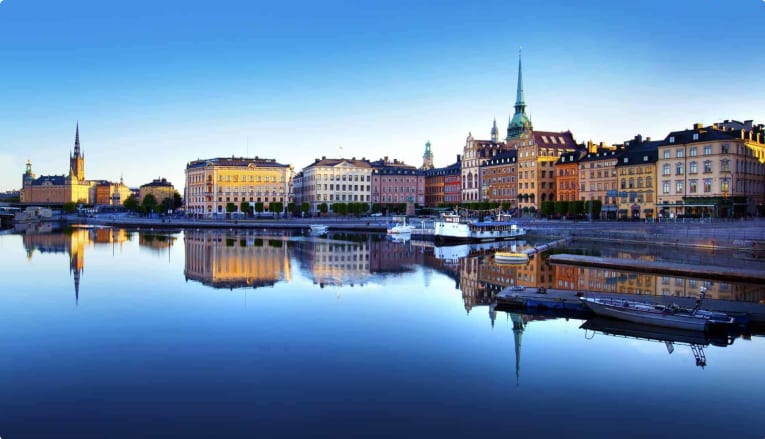
Old Town, Stockholm
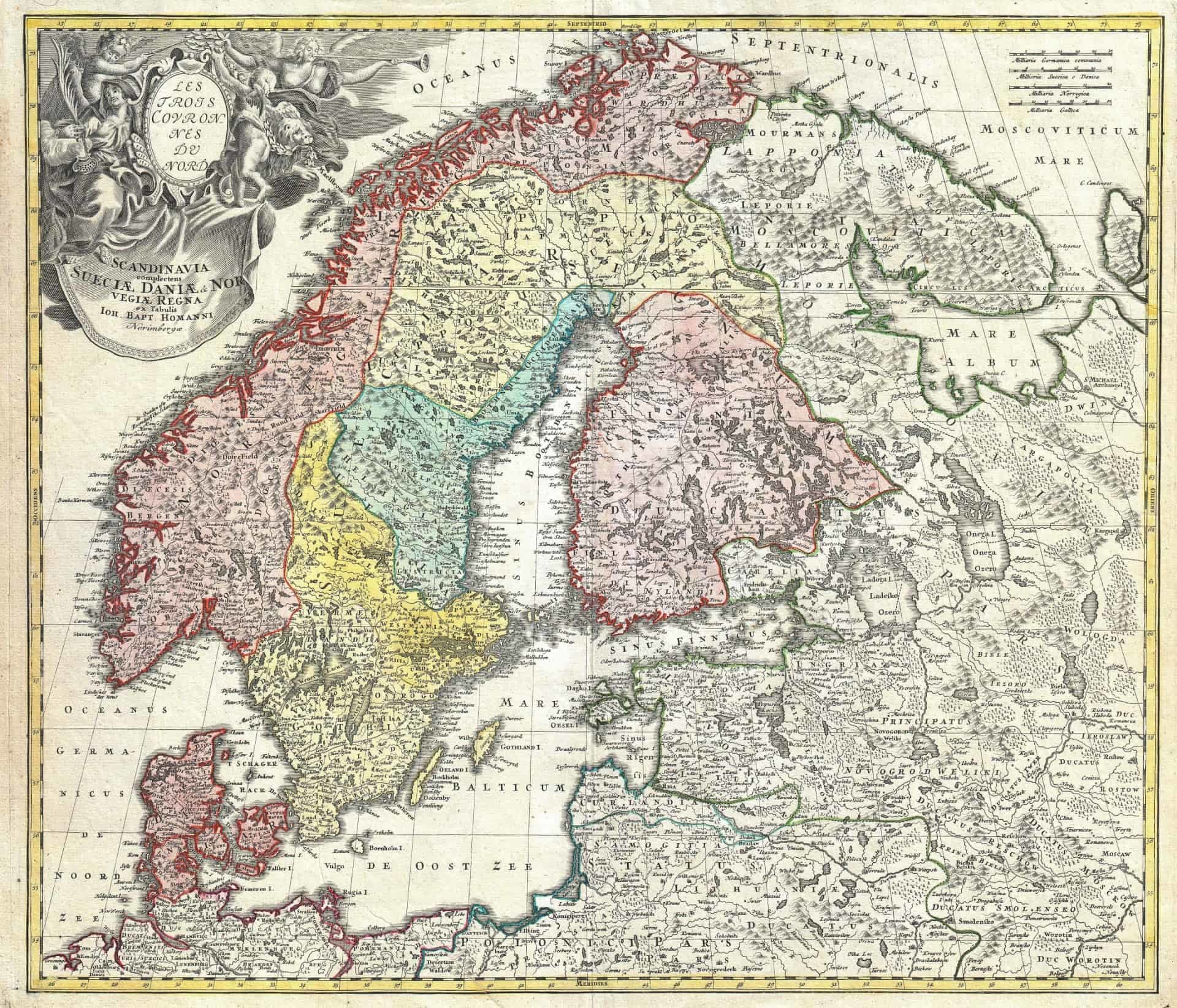
Map of Scandinavia
Related Tours

21 days
SepScandinavian Design Small Group Tour: Denmark, Sweden and Finland
Visiting Denmark, Finland
Denmark, Sweden and Finland realised that the only way to remain competitive on the world stage was through the value of superior design. Travelling with like-minded people on our small group tour you will explore the cities and towns where those high quality products, appreciated around the world, are created including hygge.
From A$17,525 AUD
View Tour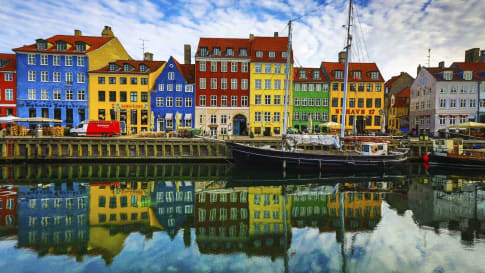
13 days
Jun, SepScandinavia tours for mature travellers
Visiting Denmark, Norway
Uncover on a small group tour for couples and solo travellers, a Viking past and view of the world’s biggest fjords on this journey through Scandinavia. In low-lying Denmark our small group journey takes us to visit the Zeeland, the sea land, and our program includes the vibrant capital of Copenhagen. In Norway we travel through endless forests, skirting great fjords to Bergen.
From A$14,995 AUD
View TourArticles

Discovering Scandinavia: Sweden's history and culture
Discovering Scandinavia Sweden‘s history and culture. This is the second article in a three part series on Scandinavia. We learn about Sweden’s history, as well as its famous design principles. Stay tuned for part three…
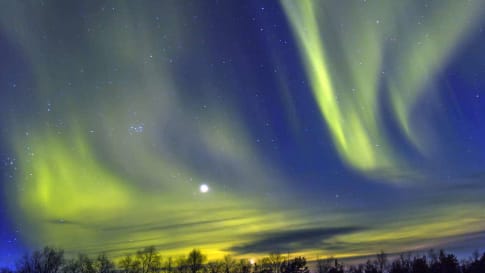
Northern Lights
The science of the Northern Lights Although many are more familiar with the Northern Lights, the natural phenomenon is not exclusive to the Northern Hemisphere. The polar lights are caused by solar activity. When there…

Discovering Scandinavia & Viking Denmark for tourists
Discovering Scandinavia Discovering Scandinavia. In this article, we will learn about Denmark with a focus on Viking history, and uncover highlights of Copenhagen. Click here to read our article focusing on Sweden. Small group tours…
